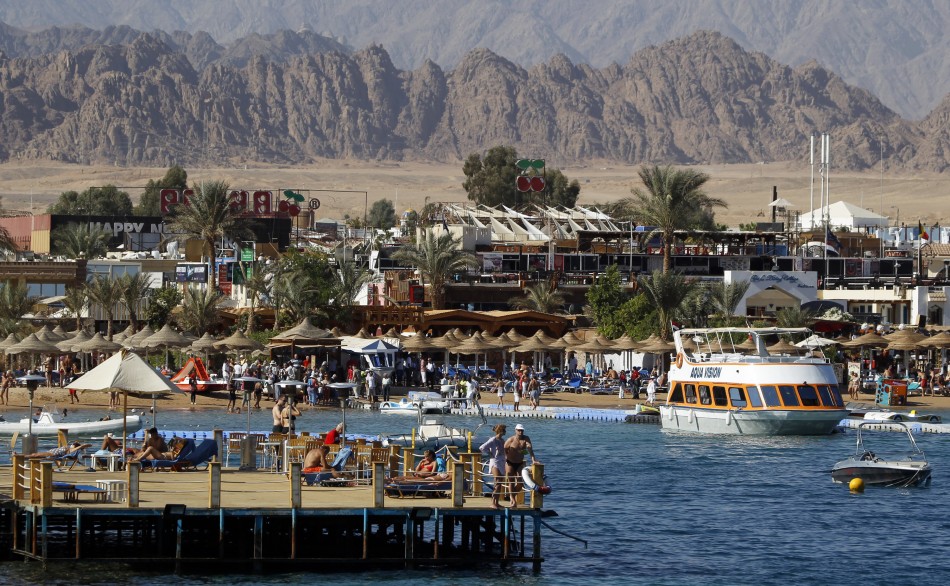The dictator is riding out his resignation in his seaside retreat at Sharm el-Sheikh, but Egyptians won’t let him stay long. From Saudi Arabia to Britain to even Israel, Stephen Kinzer weighs Mubarak’s options for exile

Hosni Mubarak of Egypt: Sharm el-Sheikh, Egypt
Hosni Mubarak’s resignation was announced on Friday, he was pondering the vicissitudes of fate at his seaside mansion in Sharm el-Sheikh, at the southern tip of the Sinai peninsula. It’s a sunny resort town, offering swanky casinos and discos, scuba diving, fine cocktails at the Four Seasons and Ritz-Carlton, and tolerably good spare ribs at the Hard Rock Cafe. An extended stay might suit the fallen leader, and perhaps also boost the local economy, which has not recovered from terror attacks there that killed 88 people, mostly tourists, in 2005.
Where Will Mubarak Go?
The dictator is riding out his resignation in his seaside retreat at Sharm el-Sheikh, but Egyptians won’t let him stay long. From Saudi Arabia to Britain to even Israel, Stephen Kinzer weighs Mubarak’s options for exile. Plus, full coverage of the Egypt revolution.
As Hosni Mubarak’s resignation was announced on Friday, he was pondering the vicissitudes of fate at his seaside mansion in Sharm el-Sheikh, at the southern tip of the Sinai peninsula. It’s a sunny resort town, offering swanky casinos and discos, scuba diving, fine cocktails at the Four Seasons and Ritz-Carlton, and tolerably good spare ribs at the Hard Rock Cafe. An extended stay might suit the fallen leader, and perhaps also boost the local economy, which has not recovered from terror attacks there that killed 88 people, mostly tourists, in 2005.
Photos: Dictators’ Retreats—Life After Being Ousted
Living out his years beside the Red Sea, though, might not be an option for Mubarak. Egyptians seem a tad unhappy about aspects of his 30-year rule, including his looting of the national treasury. If the rule of law ever comes to Egypt—a mind-boggling prospect—Mubarak might find himself the object of pesky litigation. And if armed militants could cut down 88 people in Sharm el-Sheikh, might they not find a way to assassinate him too?
Maybe another choice would be wise. Mubarak is mulling his options. Many Egyptians, along with others around the world, are wondering where he will end up.
It would be undignified for Mubarak to wander the earth like the deposed Shah of Iran, who after his fall in 1979 became an itinerant billionaire, landing first in Egypt, where President Anwar Sadat warmly welcomed him, and then on to progressively less friendly receptions in Morocco, Mexico, the Bahamas, and the United States, before returning to Egypt, where he died. Mubarak needs to find a place that will allow him to live well without worrying about possible distractions like lawsuits, extradition demands, mob attacks, or assassins.
The logical haven would be Saudi Arabia, which last month opened its doors to the deposed Tunisian leader, Zine El Abidine Ben Ali. The al-Saud family has a record of offering refuge to colorful fugitives. The Ugandan dictator Idi Amin moved there after being overthrown in 1979 and stayed until his death 24 years later. Other guests have included the Palestinian terrorist Abu Nidal, the spectacularly corrupt former Pakistani Prime Minister Nawaz Sharif, and the pro-Nazi prime minister of Iraq, Rashid Aali al-Gaylani, who fled to Berlin after being forced from power in 1941, was received by Hitler, and moved to Saudi Arabia after Hitler’s defeat.

Ben Ali Family of Tunisia: Jeddah, Saudi Arabia

Jean-Claude “Baby Doc” Duvalier of Haiti: St. Vallier-de-Thiey, France

Mohammad Reza Pahlavi, “The Shah” of Iran: Bahamas, Mexico, Panama, Egypt

Juan Péron of Argentina: Madrid, Spain

Saddam Hussein of Iraq: Hole near Tikrit, Iraq

Ferdinand and Imelda Marcos of the Philippines: U.S. Military Bases in Guam & Hawaii

Idi Amin of Uganda: Jeddah, Saudi Arabia

Adolf Hitler of Germany: The Führerbunker, Berlin



